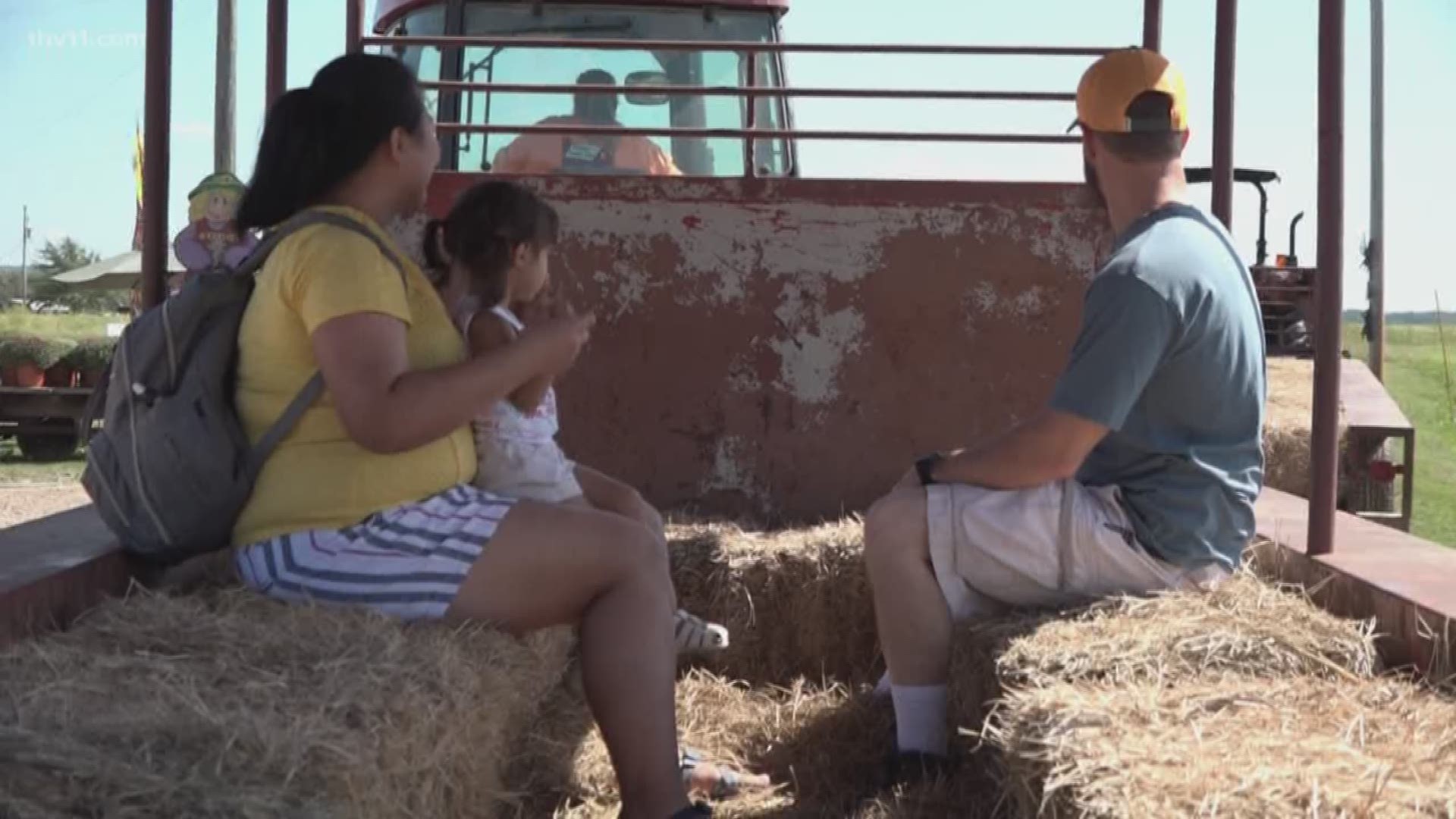MAYFLOWER, Ark. — Warm weather makes for a longer growing season, but for farms staging fall activities, the money-making window on their agro-tourism business is narrow.
Any farmer will tell you it's not that easy being green. Between the flooding this summer and heat this early fall, a place like a pumpkin patch and other agri-tourism spots are really looking forward to that cool down.
"The temperature this year has been horrible," said Lisa Schaefers, who with her farming family is embarking on the 22nd year of holding the Schaefers and Collins pumpkin patch in Mayflower.
"The heat has played a factor so far as headcount because it's just so hot to get the babies outside."
While the weather hasn't been ideal for visitors, at least it has been fine for the crops of pumpkins. They survived the scare of the Arkansas River floods this summer. The Lolley Bottoms levee a few miles away held, but the family, equipment and livestock all had to get to higher ground for a few weeks.
"It's a roller coaster," Schaefer said. "It's a big gamble every year for any farmer and any farmer will tell you the same thing."
The Schaefers own one of the 295 farms in the state that has a side hustle this time of year. Their pumpkin patch brings in thousands over the next month. They join wineries in Altus or orchards in other parts of Arkansas, helping to pad the bottom line for the people who plow the fields.
"Agro-tourism offers a wonderful perspective for farmers that want to diversify their operation," said Jessica Clowser-Burkham, an economist focused on specialized crops for the Arkansas Farm Bureau.
"Agriculture is experiencing a really tough cycle right now," Clowser-Burkham said, while adding that tourism farms face their own headaches, like insurance. "We have depressed commodity prices, we have tight margins, we have some trade uncertainty in the world."
And Schaefer says, don't judge how her farming business is going just because the pumpkin patch is packed.
"It's a risky business," she said. "A lot of people come out and say 'man, she's rolling in the dough.'"
But she's not about to give it up over a few hot days.
"It's a really expensive crop to raise, but in the long run, I love it," she said. "I love watching the kids that's come out of the cities. They get to come out to the country and see things they've never seen before."

